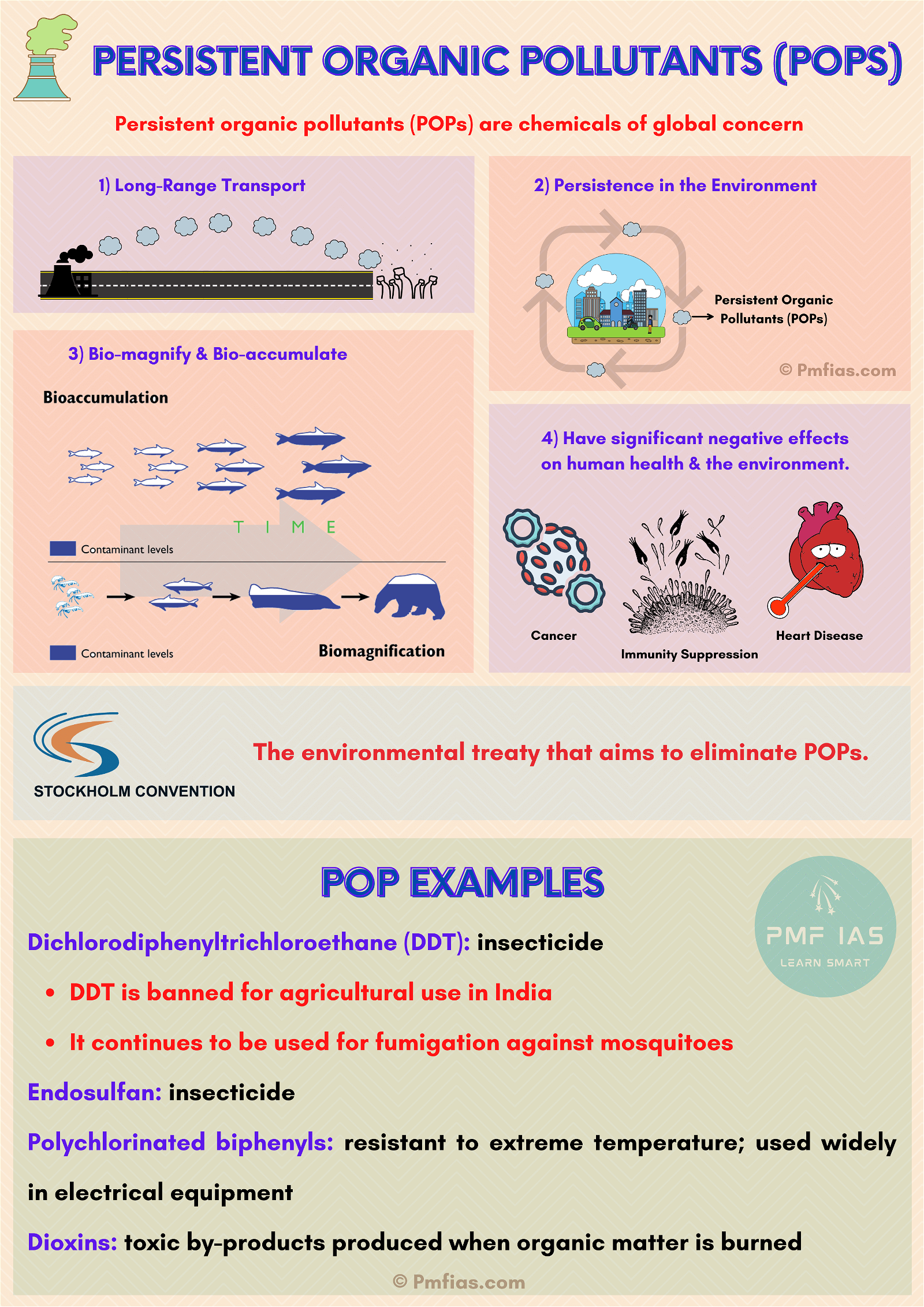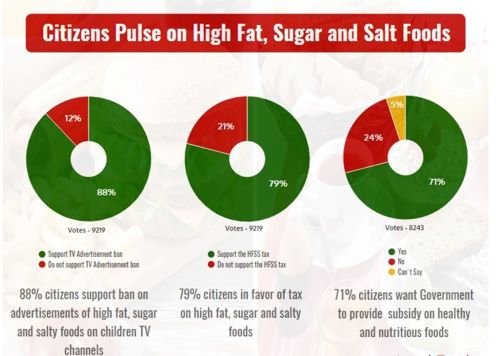
Persistent Organic Pollutants (POPs), Chlorinated Hydrocarbons (Organochlorides)
Subscribers of "Current Affairs" course can Download Daily Current Affairs in PDF/DOC
Subscribe to Never Miss an Important Update! Assured Discounts on New Products!
Must Join PMF IAS Telegram Channel & PMF IAS History Telegram Channel
Persistent Organic Pollutants (POPs)
- POPs are defined as “chemical substances that persist in the environment, bioaccumulate through the food web, & pose a risk of causing adverse effects to human health & the environment”.
- Persistent organic pollutants (POPs) are chemicals of global concern due to their potential for:
- long-range transport,
- persistence in the environment,
- ability to bio-magnify & bio-accumulate in ecosystems,
- Have significant negative effects on human health & the environment.
- The most commonly encountered POPs are organochlorine pesticides, such as
- Dichlorodiphenyltrichloroethane (DDT),
- Endosulfan,
- Polychlorinated biphenyls (PCB: resistant to extreme temperature & pressure. PCBs were used widely in electrical equipment like capacitors & transformers),
- Dioxins (toxic by-products produced when organic matter is burned), etc.
- DDT was widely used a few decades ago as an effective pesticide & insecticide.
- It was later identified as POP, & its usage was phased out in almost all developed countries.
- DDT is banned for agricultural use in India; however, it continues to be used for fumigation against mosquitoes (disease vector control) in several places in India In India.
Stockholm Convention on Persistent Organic Pollutants
- It is an international environmental treaty.
- It came into effect in 2004.
- It aims to eliminate or restrict the production & use of persistent organic pollutants (POPs).

Chlorinated Hydrocarbons (Organochlorides)
- CHCs are hydrocarbons in which one or more hydrogen atoms have been replaced by chlorine E.g., DDT (dichlorodiphenyltrichloroethane), endosulfan, chloroform, carbon tetrachloride, etc.
Applications of Chlorinated Hydrocarbons (CHC)
- CHCs are used in the production of polyvinyl chloride (a synthetic plastic polymer used to make PVC pipes).
- Chloroform, dichloromethane, dichloroethane, & trichloroethane are useful solvents.
- These solvents are immiscible with water (not forming a homogeneous mixture when mixed with water) & effective in cleaning applications such as degreasing & dry cleaning.
- DDT, heptachlor & endosulfan are were widely used as pesticides.
Effects of Chlorinated Hydrocarbons (CHC)
- DDT accumulated in food chains & caused eggshell thinning in certain bird species.
- In India, traces of DDT spray used three decades ago can still be found on the walls of homes.
- DDT residues continue to be found in mammals across the planet.
- In Arctic areas, particularly high levels are found in marine mammals.
- The traces of persistent organic pollutant are found in the breast milk of several mammals.
- In females, the concentration is lower due to the transfer of the compounds to their offspring through lactation.

















